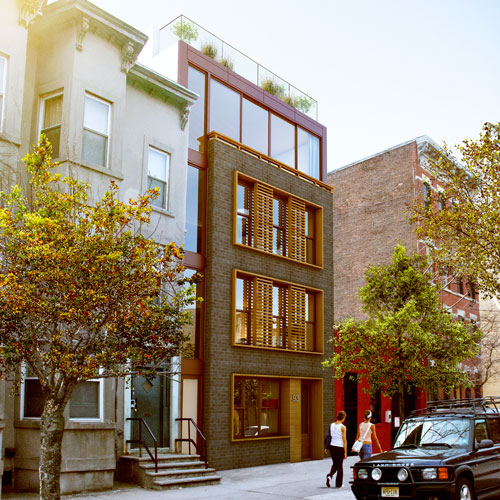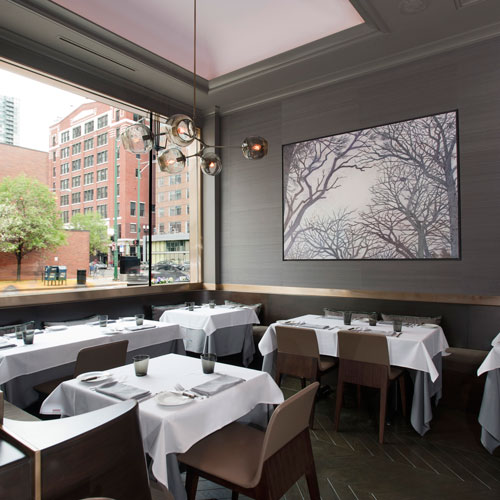Stone Ridge, Virginia-based Van Metre Homes is building an astonishing 500 homes per year, thanks in part to a new focus on the millennial generation.
“They’re the largest consumer demographic,” says Brian Davidson, executive vice president of Van Metre Homes, of the demographic cohort that follows Generation X.

—Brian Davidson, Executive Vice President
It’s not a market a lot of homebuilders are targeting. Although there are no precise dates as to when the generation starts and ends, researchers generally use birth years ranging from the early 1980s to the early 2000s, meaning millennials are often in their 20s. The challenge with attracting that demographic, says Davidson, is that many millennials have student debt and watched their parents lose significant wealth in the Great Recession recently. “We’re going after them, but it’s tough to get them to make a decision to buy,” Davidson says.
Van Metre Homes, however, has proven itself up to the challenge. Founded in 1955, the company started to experience rapid growth in the 1980s when it began buying large swatches of land to develop. The 3,600-unit Broadlands in Loudoun County was its signature community for a long time. Consisting of apartments, family residences, and retail spaces, Broadlands “showcases everything we do,” says Davidson, who’s just finishing the last couple of houses but still has commercial ground available.
Since Davidson joined Van Metre Homes in 1989, straight out of college, the company has built anywhere from 200 to 550 units a year, in part because of its flexibility. “Because we’re a privately held company and don’t have a big corporate structure to move through, we can turn on a dime,” he says. “If someone thinks something is a good idea, it’s a conversation, and if it makes sense, we do it.”

As a result, the company has been in and out of multiple businesses—real estate, HVAC, and plumbing, for example. “A lot of times we get in these businesses not necessarily as a moneymaking venture, but to support our homebuilding business when the labor pool is tight,” Davidson says. And today, Van Metre Homes has two profitable ventures: Total Structural Solutions, a supply company that manufactures trusses, wall panels, doors, and stairs, and distributes windows and trim, and it just opened a remodeling company. “We already have trust built from a good brand, and we want to grow our business with services that complement what we do,” Davidson says. “The tale has not been told on the remodeling company yet, but we’ve only soft-marketed it, and we have 40 projects under contract or consideration, so we can see it growing into something big.”
That flexibility is what led Van Metre Homes to millennials. The company’s core business consists of first- and second-time move-ups, and it’s recently begun changing the way it targets baby boomers, which is the largest purchasing demographic right now. “They’re aging, so we’ve developed some one-level living floor plans, elevator condos, that sort of thing,” Davidson says. But the millennials who are mostly living in town in Arlington, Alexandria, or the District of Columbia, have big potential. “You just have to give them something that wows them,” Davidson says. “So, we’ve come up with some designs with open floor plans, nice outdoor space, and communities that provide a lifestyle.”
Yet the challenge goes beyond trying to find ways to attract millennials from a design standpoint. “You also have to work with the way they live their lives,” says Davidson, who explains that it’s a demographic that likes simplicity. “Look at some of the top brands right now, like Amazon and Uber, and you’ll see that they’re companies that make it easy.”
Simplicity, however, is hard to achieve when building a home, which is a complex process. “We have a design studio with a lot of choices, tens of thousands of combinations of carpet and tile and countertops,” Davidson says.
Millennials don’t like to have a lot of meetings, and they like to research and communicate on their devices, so Davidson is looking for ways to simplify the process. “I’m working on building a house online the same way a car manufacturer lets you build a car online,” he explains. “That’s not innovative; other people are doing it. But I’m prepared to spit out the price and say, ‘Here it is.’ I don’t think we’re at a point where you can actually buy a house online, but I feel like somewhere in the future we may actually get there, so I’d like to set ourselves up for that.”


